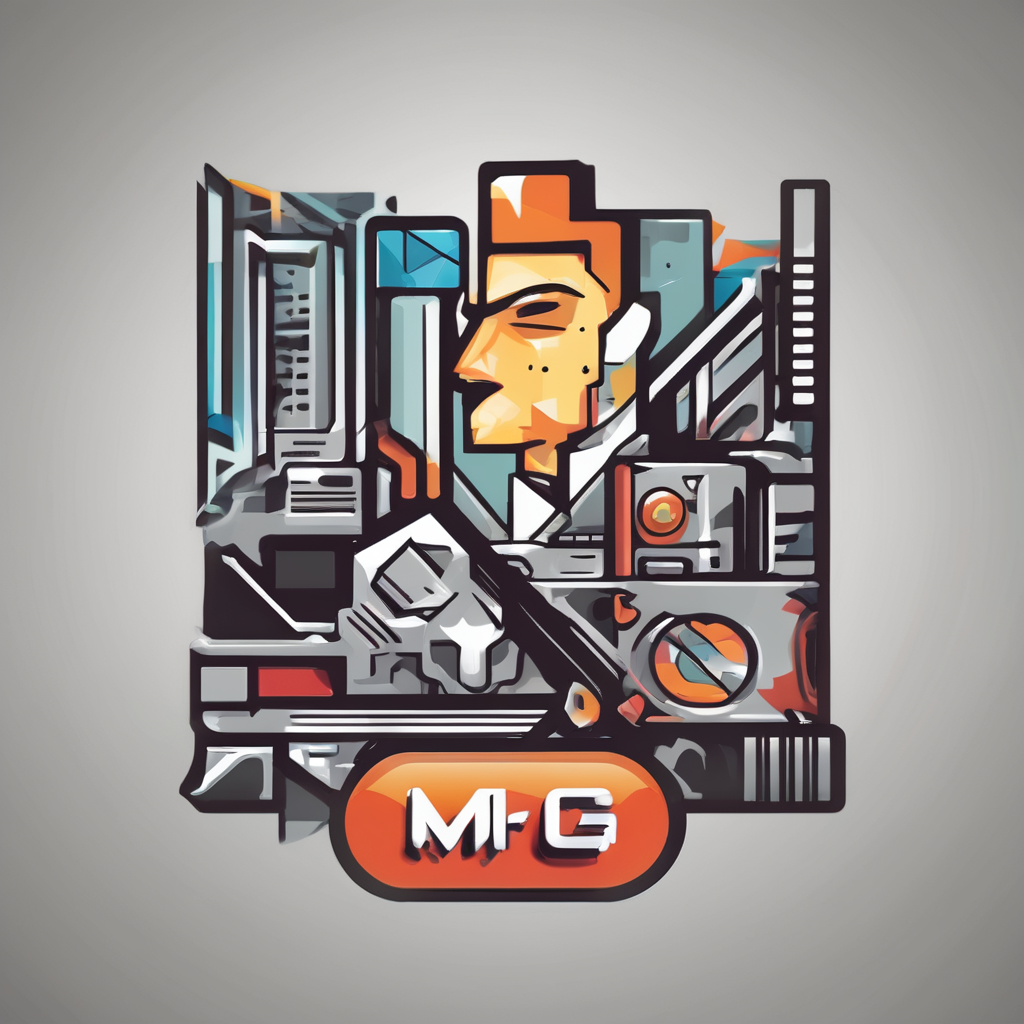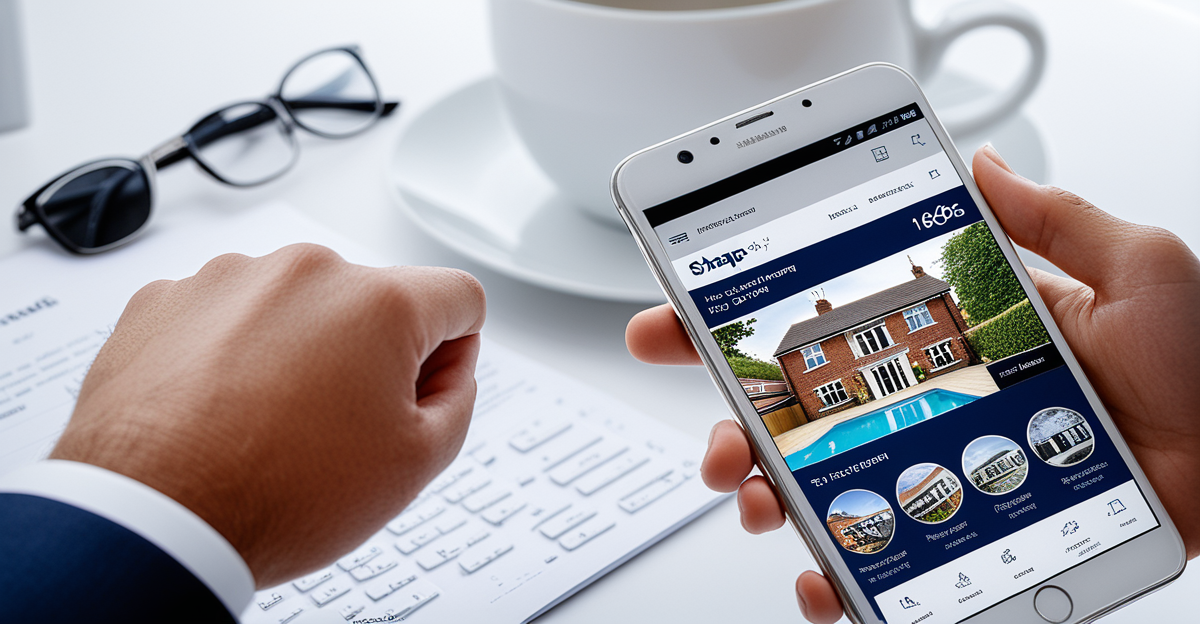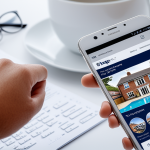Overview of Technological Advancements in Property Management
In recent years, technology in property management has transformed the UK real estate landscape, introducing innovative solutions that enhance operational efficiency and streamline processes. The scope of technology in this field encompasses a variety of tools and systems designed to improve property management activities, from automation to data analysis.
Among the key UK real estate innovations is the integration of advanced property management software that simplifies tasks such as tenant communication, lease management, and maintenance scheduling. These technological tools not only enhance efficiency but also reduce costs by automating time-consuming tasks.
Also to discover : How Can Real Estate Investment Help Secure Financial Stability in the UK?
Furthermore, technologies like the Internet of Things (IoT) and AI provide property managers with real-time data insights, enabling predictive maintenance and improving energy efficiency. By adopting such innovations, property professionals can ensure they remain competitive in a rapidly evolving market. The ability to analyse vast datasets transforms decision-making processes, providing managers with a clearer understanding of tenant needs and market trends.
Overall, these advancements create a more efficient and responsive property management environment, offering significant benefits for both managers and tenants. As technology continues to evolve, it is imperative for UK property managers to embrace these innovations to stay ahead in the industry.
Additional reading : How Does the UK Real Estate Market Impact Financial Investment Decisions?
Software Solutions for Property Management
The landscape of property management software is vast, offering a range of digital tools designed to optimize operational aspects for property managers. These solutions provide significant benefits, from streamlining tenant communication to automating lease management and maintenance scheduling.
Types of Property Management Software
The market offers diverse options, including platforms tailored for lease administration, maintenance requests, and tenant engagement. For instance, some software specializes in financial management, offering integrated billing and payment systems that ease the burden of manual accounting tasks.
Integration with Other Technologies
A key aspect of modern property management software is its ability to integrate with existing and emerging technologies. Integration with smart building systems and IoT devices, for instance, allows managers to gather real-time data, enhancing efficiency with insights into energy usage and system performance.
User Experience and Adoption Rates
User experience is critical in this sector, as positive experiences drive higher adoption rates among property managers. The rise of cloud-based solutions reflects a trend towards ease of access and flexibility, with many managers favoring platforms that offer intuitive interfaces and on-the-go accessibility. As more property professionals recognize the advantages of these technologies, adoption rates have steadily increased, leading to more comprehensive management solutions.
The Role of IoT (Internet of Things) in Property Management
The Internet of Things (IoT) is revolutionizing property management by connecting various devices and systems within a building to the internet, thereby enabling efficient management and monitoring. IoT in property management stands out as a key advancement that brings numerous benefits to both tenants and managers in the UK. Through smart buildings equipped with IoT devices, properties can achieve a new level of operational efficiency.
Benefits of IoT for Property Management
IoT solutions offer several advantages, such as real-time monitoring and predictive maintenance, which are instrumental in reducing operational costs and improving energy efficiency. For instance, IoT sensors can detect unusual energy consumption patterns, allowing managers to address issues before they escalate, ultimately enhancing the energy efficiency of buildings. These benefits extend to tenants as well. With IoT, tenants can enjoy smarter home functionalities like automated lighting and climate control, contributing to higher satisfaction and retention rates.
Successful IoT Implementations
Several pioneering real estate firms in the UK have already leveraged IoT technologies with considerable success. One notable example is the use of IoT-based energy management systems that have resulted in significant cost savings and improved tenant comfort. Such case studies underscore the transformative potential of IoT in creating smart building environments that enhance property management capabilities.
AI and Data Analytics in Property Management
In the dynamic world of property management, the integration of AI and data analytics has become pivotal. These technologies equip managers with robust tools for enhanced decision making, transforming how tenant interactions and property operations are handled. AI tools specialize in streamlining tasks such as tenant screening, where algorithms can assess potential tenants’ profiles more efficiently than traditional methods. Moreover, AI-based communication systems enable automated responses and efficient handling of tenant queries, enhancing satisfaction and engagement.
AI Tools for Enhanced Decision Making
AI facilitates superior decision-making capabilities by processing large volumes of data quickly and accurately. These tools provide insights into tenant preferences, helping managers tailor their services. Additionally, AI-driven platforms can evaluate property performance metrics, informing strategic decisions regarding maintenance, leasing, and tenant amenities.
Data Analytics for Market Insights
Data analytics offers profound insights into market trends, aiding property managers in crafting data-driven investment strategies. By analyzing market data, managers can identify high-demand areas and optimize their property portfolios accordingly. This data-driven approach empowers managers to make informed decisions that align with current real estate market dynamics.
Predictive Analytics for Maintenance and Operations
Predictive analytics is a game-changer in preemptive maintenance and operational efficiency. This technology leverages historical data to predict future maintenance needs, effectively reducing downtime and repair costs. By anticipating potential issues, facilities can be maintained proactively, ensuring uninterrupted services and increased tenant satisfaction.
Incorporating AI and data analytics not only refines property management processes but also enhances overall efficiency and effectiveness in meeting tenant needs and optimizing operations. As these technologies evolve, their role in providing strategic insights and improving service delivery will continue to grow, fostering a more modern and responsive property management landscape.
Benefits of Technology in Property Management
The integration of technology in property management brings substantial benefits, enhancing both operational efficiency and overall tenant satisfaction. The transition from manual processes to digital solutions is a game-changer, saving time and reducing costs. A notable technology benefit is automation, which streamlines routine tasks such as lease management and maintenance scheduling, allowing property managers to focus on strategic initiatives. By automating these process-heavy tasks, managers can divert resources to improve client services, fostering a more efficient working environment.
One of the pivotal aspects of adopting technology is the improved cost-effectiveness. Automated systems reduce the need for extensive staff involvement in day-to-day operations, thereby lowering labour costs. Moreover, predictive maintenance facilitated by IoT and AI technologies minimizes costly repairs and equipment downtime, enhancing property longevity. Real-time data insights also contribute to operational efficiency by optimizing resource allocation and energy consumption, resulting in substantial cost savings.
Finally, technology plays a significant role in improving tenant satisfaction and retention rates. Advanced property management tools offer tenants convenient solutions for communication, payments, and service requests. The implementation of IoT-enabled smart buildings provides tenants with enhanced comfort through automated climate controls and security systems, making properties more attractive and fostering tenant loyalty. In essence, embracing these technological advancements not only strengthens operations but creates a high value, tenant-focused service model that keeps residents content and engaged.
Challenges and Considerations in Adopting Technology
While the benefits of incorporating technology in property management are substantial, the journey is not without its challenges. Many technology challenges relate to the complexities of implementation and the cultural shifts required for successful integration. Property managers often face hurdles such as cybersecurity concerns, which must be addressed to protect sensitive data. Understanding these issues is essential for mitigating risks and ensuring a smooth transition.
Common Barriers to Technology Adoption
A significant barrier to adopting new technologies is the resistance to change among staff. Employees may be accustomed to traditional workflows and hesitant to embrace new systems. Furthermore, initial implementation issues can arise from integrating incompatible software or underestimating the time and resources needed for technology deployment. Addressing these barriers requires thoughtful planning and robust change management strategies.
Mitigation Strategies for Property Managers
To overcome these obstacles, property managers must develop comprehensive change management plans. This includes preparing staff for new technology through targeted training and emphasising the long-term benefits of digital tools. Investing in cybersecurity solutions is also crucial to safeguard data and maintain trust among tenants. Implementing regular security audits and keeping systems up to date are effective strategies to enhance data protection.
The Importance of Training and Support
Continuous training and support are vital components of successful technological adoption. Providing ongoing education and resources helps staff become proficient with new tools, ultimately leading to higher adoption rates. Moreover, establishing a dedicated support team ensures employees have access to assistance when needed, which reduces frustration and improves morale. By prioritising training, property managers can foster a culture of adaptability and innovation, setting the stage for successful technology integration.
Future Trends in Property Management Technology
The evolution of technology in property management points towards exciting future technology trends, with significant innovations set to reshape the UK’s real estate landscape. Emerging technologies such as blockchain and augmented reality (AR) promise to revolutionize property management practices. Blockchain’s potential to streamline various processes, such as secure and transparent lease agreements, may simplify transactions and documents. On the other hand, AR could enhance property showcasing by offering immersive experiences to potential tenants, setting new standards in interactive property marketing.
Predictions for Future Practices
As the industry embraces these innovations in property management, a shift towards sustainability is anticipated. Sustainable technology will likely play a pivotal role, aligning with the UK’s increasing emphasis on reducing environmental impact. Properties incorporating advanced energy management systems and sustainable building materials will become more attractive, catering to eco-conscious tenants and promoting long-term value.
Sustainable Technology’s Role
UK real estate future trends are also set against the backdrop of sustainability. The integration of renewable energy solutions, alongside efficient building designs, will drive the market towards greener practices. Such initiatives not only meet regulatory requirements but also enhance the marketability of properties amidst growing environmental awareness.
In conclusion, property managers in the UK should stay informed and proactive, adopting these advancements to maintain a competitive edge and foster a more sustainable future in real estate.
Overview of Technological Advancements in Property Management
In the dynamic world of property management, technology in property management is playing a crucial role in transforming the operational landscape across the UK. The term encompasses a broad range of tools and systems, from advanced property management software to sophisticated IoT devices, all designed to enhance efficiency, reduce costs, and improve tenant and management experiences.
Key UK real estate innovations include automation technologies that save property managers significant time and effort by streamlining tasks such as lease processing and maintenance scheduling. These advancements not only improve operational efficiency but also foster a competitive edge by allowing property teams to allocate more resources towards client-centric strategies.
Further, the integration of AI and data analytics empowers managers to make informed decisions, relying on real-time insights to adapt services to current tenant needs and market trends. By leveraging these technologies, property professionals can provide a more responsive and personalized tenant experience.
The continuous progress in technology in property management ensures that both managers and tenants reap substantial benefits, such as improved communication channels, predictive maintenance, and enhanced building safety and comfort. As the UK real estate market evolves, embracing these technologies remains critical to maintaining relevance and driving success in the industry.







